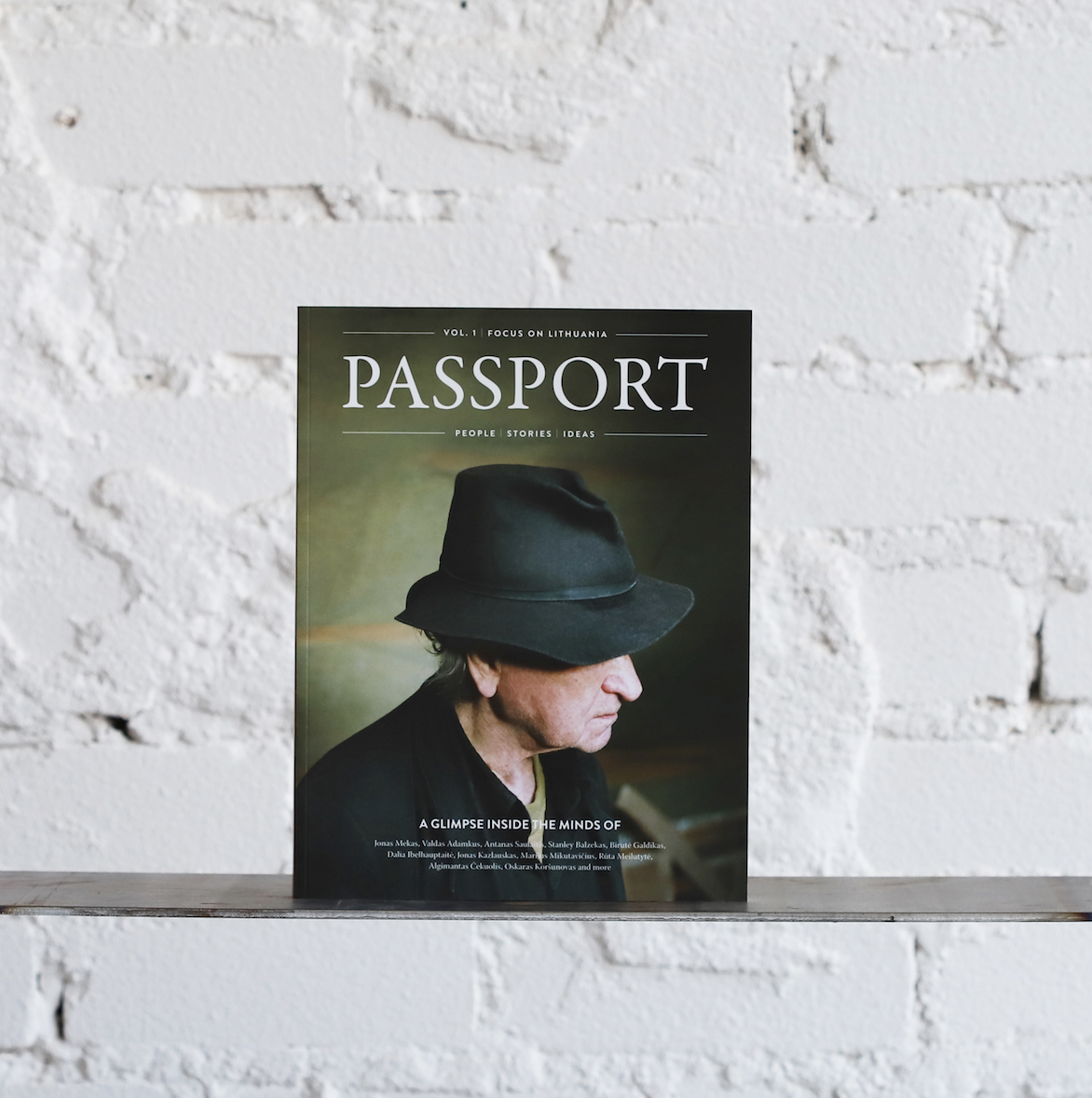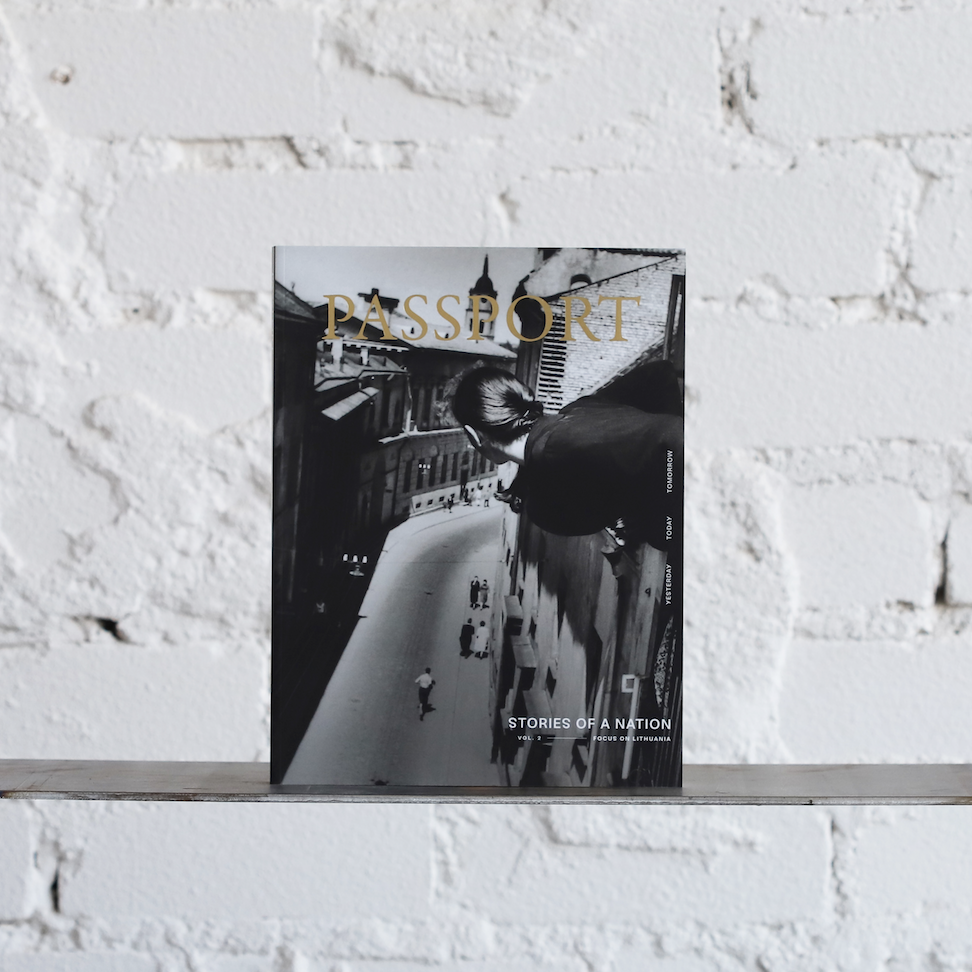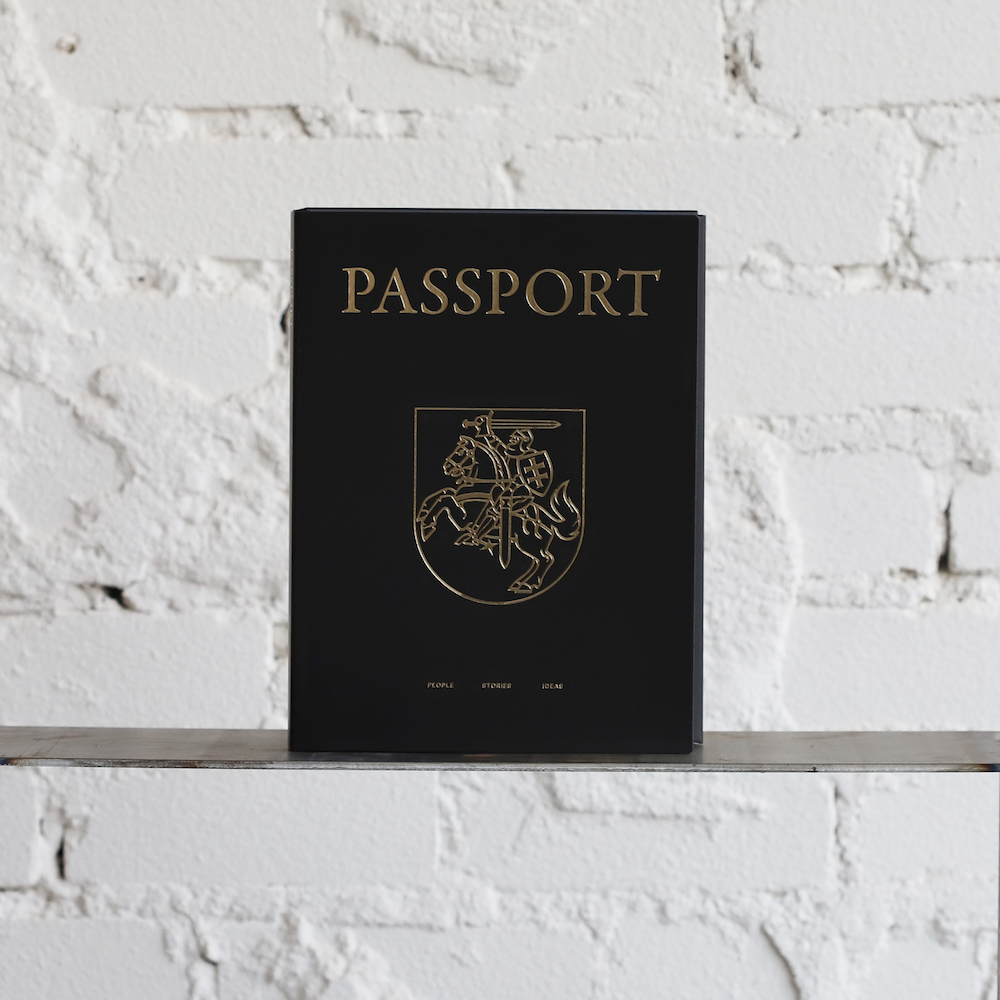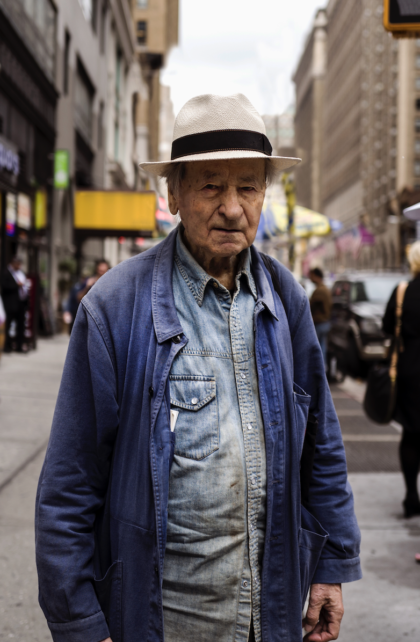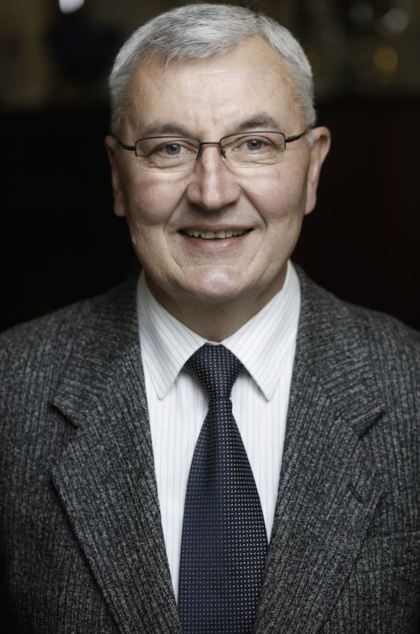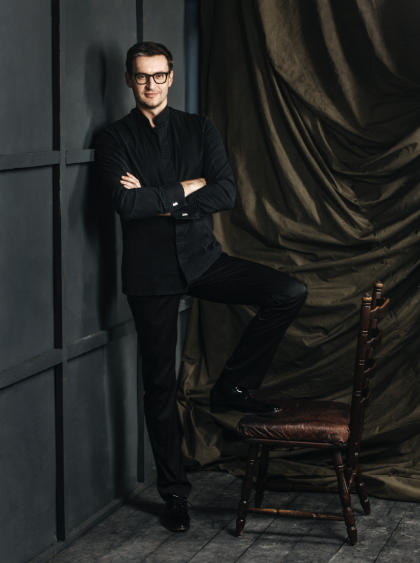Public and political activist
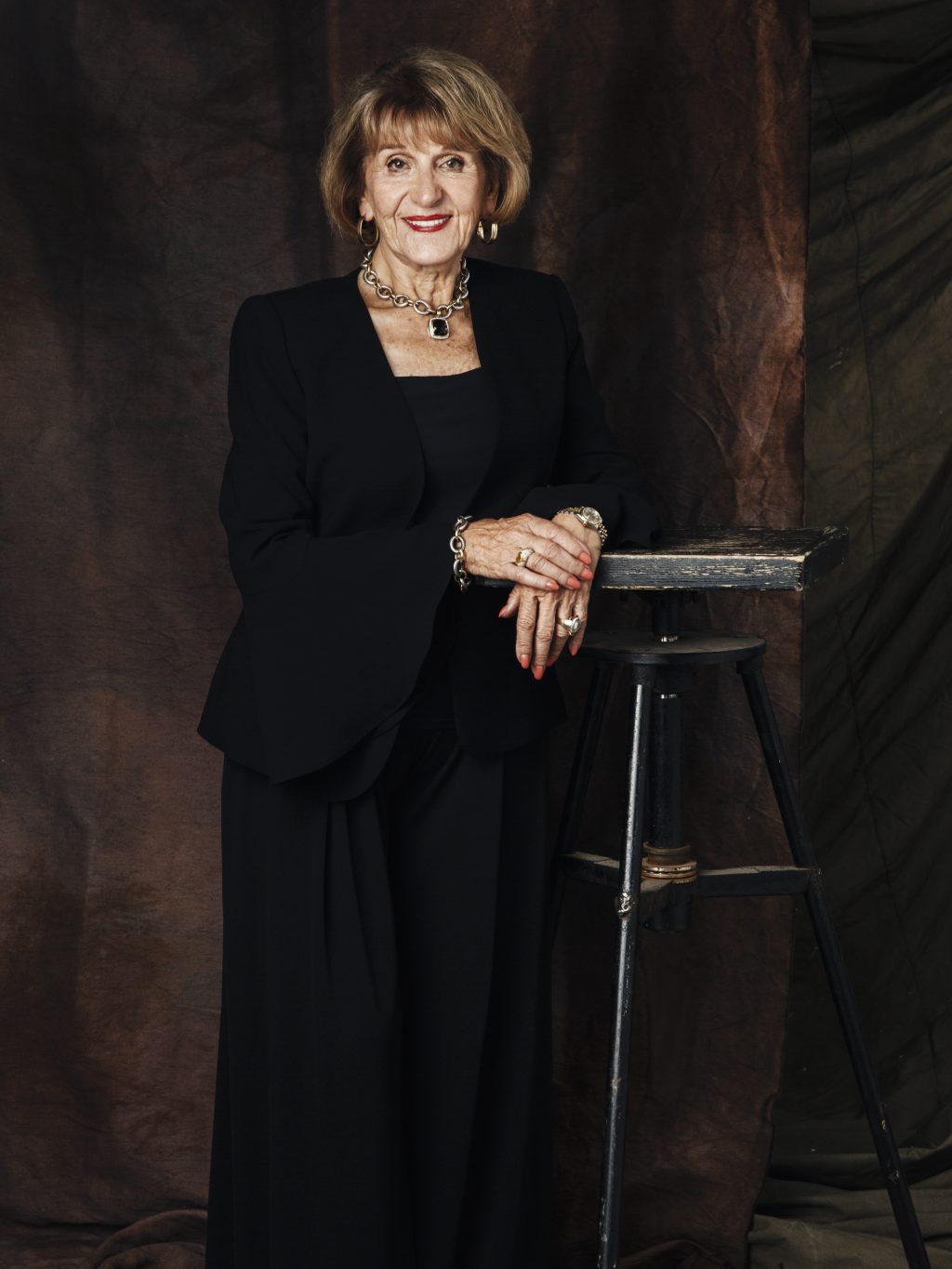
I respect those who are able to find a solution to help achieve common goals, despite differences in views and beliefs.
Angela Nelsas
I was born into a patriotic, community-minded, Catholic family, the youngest daughter of Ciprijonas and Petronėlė (née Guogaitė) Barkauskas, progresive farmers in Suvalkija (South Lithuania). During the first Soviet occupation in 1939, our family was on the list to be deported to Siberia. We were saved by a soviet general of Jewish descent who had been living in our house until the German occupation. He was disappointed by the communist regime.
In 1944, as the second Soviet invasion approached, my parents knew they wouldn’t be able to avoid deportation a second time. We climbed into horse-drawn wagons and left our beautiful home behind, hoping to return. The journey westwards was long and trying. We avoided refugee centres along the way, because there was a real danger that the Germans would confiscate our horses and belongings and force my father to work on the Front. After the war ended we lived in refugee camps and, in 1949, after years of uncertainty, we were allowed to leave for America, supported by the US Catholic Welfare organisation and sent to Virginia State to work on the farm. The owners were kind, but my parents wanted to live closer to other Lithuanians, so they saved up their money to repay our sponsors 125 USD debt for train fairs and we left for Chicago.
From childhood, my parents instilled in me and my sisters Aldona and Roma love for our occupied homeland and our adoptive country America. I was active in the scouts and the Lithuanian Catholic youth organisation Ateitis, and I sang and danced with the Chicago Lithuanian opera company as well as attended other cultural events.
I always wanted to have a Lithuanian family, to maintain our traditions, culture and pass it on to my children. I valued my heritage and feel the same way today! This value was always self-evident to me. I knew that my husband was going to be a Lithuanian and that we would speak Lithuanian at home. In 1958, I met Romas, who share these same values. We were married in 1960 by a family friend, Monsignor Mykolas Krupavičius in Holy Cross Lithuanian Catholic Church. Romas was and continues to be an advocate and supporter of my public and political activities. Without his financing of all my activities and the support of my whole family I wouldn’t have been able to do as much for Lithuania and America.
Meaningful work is never done in a single day. Although one person can achieve a great deal with vision and the ability to prioritise, without the assistance of likeminded people and encouragement of loved ones the road is a very difficult one. When my husband became a CEO of Serec of California in 1964, we moved to Los Angeles. I had to devote my time to my family and daughters Audra Narbutas-Chadwich, Renata Paulius and Inga Rugienius. When they were older, I was elected vice president of the Lithuanian-American Community Inc. (Western Region), the United Lithuanian Relief Fund of America, the treasurer of the Lithuanian National Foundation. Starting from 1987, I was elected as vice president of the Baltic American Freedom League (BAFL) and later, several times as president, also other activities such as Lithuanian Saturday School and to support education and Lithuania’s freedom. I liked being actively involved, but it required a lot of dedicated work, patience, diligence and faith that Lithuania could re-establish its independence.
During Lithuania’s Soviet occupation I maintained close ties with people in the Lithuanian underground and resistence. Their work inspired me and drove me to keep working to achieve our goal. Nearly every day my father would get a telephone call from his friend Msgn. Mykolas Krupavičius, who would always ask me the same question: ‘Angelė dear, when are you going to join the fight to liberate our Lithuania?’ Their tireless encouragement to stay active had a tremendous influence on my later choices in life and on my work in support of our homeland’s liberation and prosperity.
I’ve always tried to build dialogue and speak boldly about my convictions. I believe this trait is very important in both daily life and in my interaction with US prasidents, members of the US Congress, US administration officials, the public and the media.
When I was chairwoman of the Lithuanian-American Community’s Western District, in 1989, together with the committee I organised the first visit to California by the chairman of the supreme council, Professor Vytautas Landsbergis. In my time spent with him I came to understand that the Lithuanian people sought to win Lithuania’s independence and that they had the will and resolve to change the the future of their nation and country. This inspired me to work harder and participate in various forums, write articles for the Lithuanian and American press, and continue organising meetings between visiting leaders of the Sąjūdis reform movement and members of the US Congress, government officials, journalists and radio and television stations. I was very active in many forums and I never tired of speaking out about Lithuania’s occupation.
13 January 1991. On that fateful night for Lithuania I was in Washington, visiting members of Congress and administration officials, hoping to secure their support and approval to recognise Lithuania’s independence. I remember, after a long day of lobbying in Congress, the phone rang in my hotel room at 10:55pm. I heard the hoarse voice of Professor Landsbergis on the receiver: “Angelė, Soviet tanks are rolling towards the parliament. Do what you can, because tomorrow we might not be here at all.” These words shocked me. Crying, I woke up my husband, then grabbed the phone and began calling friends and lobbyists in Congress, but it was already late in the evening. The city was asleep. Suddenly, I remembered I had the personal phone number for Congressman Chris Cox, a good friend of mine. With hands shaking and tears in my eyes, I called him and told him what Professor Landsbergis had said to me, adding that rivers of blood might soon begin flowing in Lithuania! His response was brief: “Say no more, Angela. I’ll take care of everything.” I heard later that same night that President George H. W. Bush had telephoned Mikhail Gorbachev.
After many years working with American political institutions, we succeeded in rousing their consciences and finally achieved recognition for Baltic independence. I’ll never forget the day I was invited to the White House to witness the signing ceremony of the US-Baltic Partnership Charter, which stated that the United States welcomed and supported Baltic efforts to become members of NATO. It was a wonderful feeling, knowing that dawn was breaking after such a long night! How happy we all were when it happened and how proud we were; Lithuanians, Latvians and Estonians at the signing ceremonies! Our long years of tremendous efforts were realised for the security of our homelands. Thank you, America!
Goals are more important than personalities. If you believe in what you do, you can endure anything – derision, humiliation, jealousy, rejection and great injustice.
Angela Nelsas
I never wanted to go with the flow. I’m grateful to my good fortune and to my family, for supporting me during the most difficult times, that I had people by my side who inspired me, supported me and kept me going. I am grateful to those Lithuanian patriots, politicians, poets and spiritual leaders whose faith in Lithuania and its sovereignty gave me such spiritual strength and inspiration. And above all, I am thankful to God!
Every victory inspires us to further, even greater work. It’s very important for me to know that the efforts I dedicated my time and my life to have been meaningful and just. It’s this knowledge that drives me, always compelling me to move onward and never give up.
One of my most important achievements was the creation of the Baltic Caucus group in the US House of Representatives in 1998. To make this happen, I needed the support of non-governmental organisations. So I’m pleased we were able to receive the backing of BAFL, the Lithuanian press and, later, the broader Baltic community. This congressional group supports the security and independence of the Baltic countries as well as their economic and democratic development, and also receives the presidents, diplomats and government officials of the Baltic countries during their visits to the United States. I was advised by my Congressman, Ed Royce, to find someone of Baltic decent. So I found and convinced Congressman John Shimkus (a Republican of Lithuanian descent) and Dennis Kucinich, a Democrat, to act as chairmen of the Baltic Caucus. This achievement is incredibly important, both for me and for Lithuania, Latvia and Estonia. BAFL received Latvia’s highest medal from Latvian President Vaira Vīķe-Freiberga. Lithuania’s membership in NATO was and is one of the greatest guarantors of Lithuania’s security, protecting it from another occupation.
I never imagined how much effort and time would be needed to present House Resolution 51 in the US Congress, concerning the demilitarisation of the Kaliningrad district. I had to gather a considerable amount of information and draft the resolution in coordination with Professor Landsbergis, Dr Darius Furmonavičius and the US administration. The US administration was against it. It was up to me to supply Congressman Cox with relevant information about the military enclave, number of missiles, number of military forces and more. Secretly, I had to get that from the Baltic leaders, it had to be very secret, confidential. After a long and dedicated effort, we achieved our goal; the resolution was adopted unanimously and included in the Congressional Record. BAFL and Congressmen Chris Cox achieved victory. I treasure the congressman’s thank you letter and a photograph he sent, with the handwritten note: ‘To Angelė, our leader! From your adopted Lithuanian, Chris Cox.’ To this Congressman John Shimkus added: ‘Thanks for all you do for Lithuania and America.’
I’ll never forget meeting Pope John Paul II when I was in Rome in 1987 to celebrate the 600th anniversary of Lithuania’s baptism. With the help of His Eminence the Cardinal Audrys Juozas Bačkis, I had the privilege to introduce the Pope to Eugenija Jackevičiūtė-Keresevičienė, a former deportee to Siberia and a relative of the Blessed Jurgis Matulaitis. I presented the Pope with the family tree of the Blessed Jurgis Matulaitis, which he received with great interest.
I would be a hypocrite if I said I haven’t felt personal satisfaction from the awards, recognition and letters of gratitude from US presidents, government officials, the US press for naming me ‘The Bright Light in Freedom’s Cause.’ It inspires me to do more for Lithuania. I especially treasure the Order of the Grand Duke Gediminas given to me by President Valdas Adamkus, and the NATO Star, a medal awarded to me for my work on behalf of Lithuania and its campaign to join the North Atlantic Alliance.
I’m very pleased that my daughters Audra, Renata and Inga have created Lithuanian families, and that I have been able to instil a love for Lithuania in them and in my ten grandchildren, and to pass on to them the Lithuanian language and traditions. These are values I inherited from my parents, grandparents and ancestors.
My grandfather Juozas Barkauskas, a distributer of banned books in Suvalkija, made a great contribution to the preservation of Lithuanian heritage and language. I hope that this devotion and love for the written Lithuanian word and language will continue to be passed on to new generations.
Freedom should never be taken for granted. We have an obligation to foster and protect it. There can be no freedom without justice. With the right to freedom and to elect our country’s president and virtuous and responsible government representatives, we can create a better tomorrow for ourselves, our families, our nation and our country. Living in freedom, we are responsible for a better tomorrow for our country. Our duty is to ensure that future generations will also be able to lead dignified lives in their homeland, without having to seek their fortunes abroad.
I am persistent, and I always try to finish the work given to or planned by me to the end. I also work toward my goals out of a desire not to disappoint the people I feel I have an obligation to. All of the authoritative figures in my life were of strong character and had their own enviable faith in themselves. I’m fortunate that since my earliest days I’ve had the chance to know and learn from them.
There’s nothing more important than faith, freedom, parents, family and one’s homeland.
Angela Nelsas
I never lost faith in Lithuania. Perhaps it sounds a bit naive but I choose to believe that Lithuanians are a diligent, talented and freedom-loving people. To be sure, the long and brutal Soviet occupation had a profound effect on the development of our national mentality, but this is a thing of the past. We should never forget the eternal values our parents and ancestors protected, for which freedom fighters, partisans, martyrs and deportees to Siberia shed their blood to defend. Now these values have to be defended by Lithuanian patriots.
Being Lithuanian is more than some mundane definition. It’s like a feeling deep within, something we can neither touch nor reject. I’m happy that from my youngest days my parents gave me an unfailing faith, respect and love for Lithuania. The roots for being Lithuanian begin with the family, and it is a value we must pass on to future generations. Lithuanian events, schools and every other kind of activity are simply means to strengthen our Lithuanian community. They too are incredibly important.
Sometimes we give up too quickly. Obstacles are unavoidable, so we have to learn how not to surrender and always look to the future, with God’s help. Each of us can give much more than we can imagine. I say this from my own experience.
It’s a miracle that Lithuania has arisen for a new life after so many years of oppression, and that it has shown we must be united and work sincerely towards a common goal – even if it’s hard at times. In the name of our homeland, Lithuania. Together.
I believe in Lithuania and its bright future.


